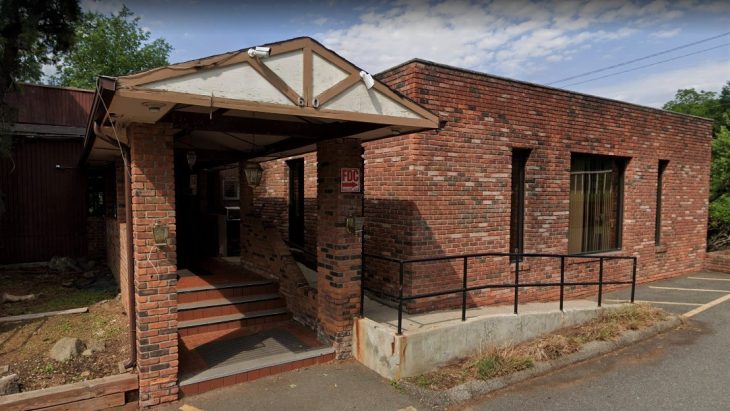Rockland Outpatient Treatment Program

About Rockland Outpatient Treatment Program
Rockland Outpatient Treatment Program specializes in treating adults, youth and families battling substance use and co occurring mental health disorders. Operated by Samaritan Daytop Village, they welcome people from all backgrounds in Blauvelt, New York.
You can access medically supervised outpatient detox and specialized opioid addiction treatment to start or continue recovery. They accept Medicaid and most major insurance providers. A sliding fee scale or financial assistance is also available if you don’t have insurance.
Facilitating Healing with Medication Assisted Treatment (MAT)
For me, their MAT program really stood out. They provide integrated care for folks with opioid use disorders using FDA approved medications. MAT can help you manage the physical symptoms of quitting opioids while reducing the chances of relapse.
You’ll also participate in individual and group therapy. Sessions focus on relapse prevention, developing coping skills, overcoming trauma and more. You can access complementary holistic approaches, including creative arts and spirituality groups. Gender specific sessions are also available.
Additional Services for Success
I like that they collaborate with local schools, family services and community agencies to support every part of your recovery and daily life. You can access vocational and educational assistance, supportive housing, primary health care, peer support and more. These services can help you improve vital recovery aspects to support your journey and overall wellness.
Insights from Former Clients
I was also impressed by their positive reviews. Clients praised the staff for their compassion and knowledge. They expressed how the program helped them make progress toward sustained recovery. Families shared that they appreciated being involved and supported throughout their loved one’s recovery process.
Finding Tranquility in Rockland County
You’ll find Blauvelt State Park nearby. It has acres of forested green space and hiking trails that offer stunning views of the Hudson Valley. Nyack Beach State Park and Tallman Mountain State Park are also just a short drive away. You can enjoy some time in nature and participate in outdoor activities that support your recovery.
| Levels of Care | Detox Service Setting | Programs | Payment Options | |||
|---|---|---|---|---|---|---|
|
In outpatient therapy, you’ll attend therapy sessions several times each week while living at home. This is ideal if you have a strong support system and a lower risk of relapse. Outpatient treatment offers flexibility to maintain work, school or family obligations. |
Aftercare programs provide ongoing support after you complete a rehab program. They may include several components to help you maintain sobriety including therapy, community support groups and relapse prevention strategies. This gives you a network of resources as you reintegrate into your daily life. |
Dual diagnosis programs address substance use disorders and co-occurring mental health conditions simultaneously. This integrated approach to care improves the likelihood of long term recovery and stability by addressing the root causes of addiction. |
||||
|
Outpatient detox gives you access to medically supervised withdrawal services while still allowing you to live at home. You’ll attend a clinic for treatment and monitoring. This flexible option is suitable for those with mild to moderate withdrawal symptoms who have strong support systems. |
||||||
|
Adult programs address the substance use and life challenges specific to adults. Therapists can deliver sessions in individual, group and family settings. Services often include job support and life skills training in a structured environment. |
Alcohol detox programs offer medical support to help individuals withdraw safely from alcohol. Your care team may use medications to ease your symptoms and provide medical monitoring to address complications. |
Cognitive behavioral therapy focuses on changing harmful thought patterns and behaviors associated with addiction. You’ll learn healthier coping mechanisms by identifying and replacing negative thoughts. This improves your emotional resilience and decreases your relapse potential. |
Men's programs address substance use while also considering the social pressures, family roles and mental health concerns that are specific to men. You’ll learn healthy coping mechanisms as you build emotional resilience and develop communication skills. |
Opioid detox uses medications to ease severe withdrawal symptoms. It also includes medical supervision to help you manage potential complications. These services allow you to stabilize and begin a recovery plan. |
Women's programs offer a safe and supportive space to focus on gender specific issues such as trauma, family roles and mental health conditions. Therapists tailor the sessions to address women's needs and foster empowerment in a healing and nurturing environment. |
Young adult programs are designed for individuals who are transitioning into adulthood. Topics of discussion typically include identity, independence and peer relationships. Providers may also offer life skills training and career support. |
|
Payment Assistance
|
Medicaid
|
Medicare
|
Private Insurance
|
Self Pay
|
Levels of Care
In outpatient therapy, you’ll attend therapy sessions several times each week while living at home. This is ideal if you have a strong support system and a lower risk of relapse. Outpatient treatment offers flexibility to maintain work, school or family obligations.
Aftercare programs provide ongoing support after you complete a rehab program. They may include several components to help you maintain sobriety including therapy, community support groups and relapse prevention strategies. This gives you a network of resources as you reintegrate into your daily life.
Dual diagnosis programs address substance use disorders and co-occurring mental health conditions simultaneously. This integrated approach to care improves the likelihood of long term recovery and stability by addressing the root causes of addiction.
Detox Service Setting
Outpatient detox gives you access to medically supervised withdrawal services while still allowing you to live at home. You’ll attend a clinic for treatment and monitoring. This flexible option is suitable for those with mild to moderate withdrawal symptoms who have strong support systems.
Programs
Adult programs address the substance use and life challenges specific to adults. Therapists can deliver sessions in individual, group and family settings. Services often include job support and life skills training in a structured environment.
Alcohol detox programs offer medical support to help individuals withdraw safely from alcohol. Your care team may use medications to ease your symptoms and provide medical monitoring to address complications.
Cognitive behavioral therapy focuses on changing harmful thought patterns and behaviors associated with addiction. You’ll learn healthier coping mechanisms by identifying and replacing negative thoughts. This improves your emotional resilience and decreases your relapse potential.
Men's programs address substance use while also considering the social pressures, family roles and mental health concerns that are specific to men. You’ll learn healthy coping mechanisms as you build emotional resilience and develop communication skills.
Opioid detox uses medications to ease severe withdrawal symptoms. It also includes medical supervision to help you manage potential complications. These services allow you to stabilize and begin a recovery plan.
Women's programs offer a safe and supportive space to focus on gender specific issues such as trauma, family roles and mental health conditions. Therapists tailor the sessions to address women's needs and foster empowerment in a healing and nurturing environment.
Young adult programs are designed for individuals who are transitioning into adulthood. Topics of discussion typically include identity, independence and peer relationships. Providers may also offer life skills training and career support.
Contact

Stephanie spent two decades as a healthcare marketer and content writer and has a degree in Speech Communications. She specializes in creating both medical and culinary content and lives in Central Illinois with her husband, best friend, and fellow homebody (conveniently, he’s all three). She’s dedicated to spreading kindness, living with honor, and advocating for that criminally underrated herb, fennel.

Mariah Bourne earned a Master of Arts in Community Social Psychology from the University of Massachusetts Lowell. She has worked as a research associate on addiction and treatment studies, including opioid craving interventions. Today, she is a freelance writer. She’s passionate about sharing knowledge and resources to help others start their recovery journey.




